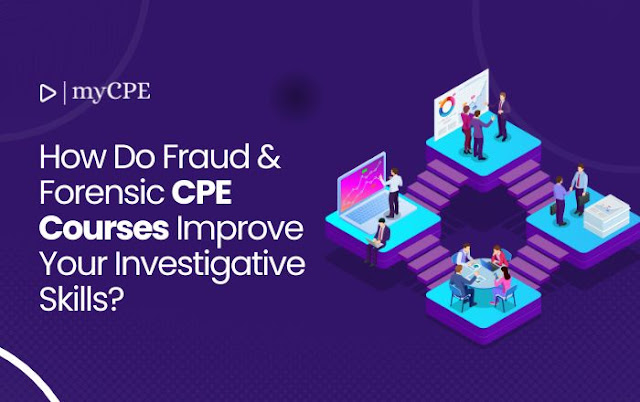The Role of CPA CPE Courses in Professional Networking
Continuing Professional Education (CPE) courses are vital for Certified Public Accountants (CPAs) to maintain their licenses and stay updated with the latest industry developments. However, beyond just fulfilling regulatory requirements, CPA CPE courses play a crucial role in professional networking. This aspect of CPE is often overlooked but can significantly enhance a CPA's career. This article explores how CPA CPE courses facilitate professional networking and why it’s beneficial for CPAs to leverage these opportunities.
Building Connections with Industry Peers
One of the primary benefits of CPA CPE courses is the opportunity to meet and connect with industry peers. These courses often bring together professionals from diverse backgrounds and various sectors of the accounting industry. By participating in discussions, group activities, and projects during these courses, CPAs can build meaningful relationships with fellow attendees. These connections can lead to collaborations, job opportunities, and valuable exchanges of knowledge and experiences.
Learning from Experts and Influencers
CPA CPE courses are usually led by experienced professionals and industry experts. Engaging with these instructors provides CPAs with direct access to influential figures in the accounting world. By asking questions, participating in discussions, and seeking advice, CPAs can gain insights that are not available through traditional learning materials. Establishing a rapport with these experts can open doors to mentorship and further networking opportunities.
Expanding Professional Networks
Attending CPA CPE courses in different locations or on various topics can help CPAs expand their professional networks beyond their immediate geographical area or specialty. For instance, enrolling in South Carolina CPA CPE courses can connect a CPA with professionals from that state, opening up regional networking possibilities. This geographical diversification can be particularly useful for CPAs looking to relocate, expand their practice, or understand regional accounting nuances.
Collaborative Learning Environments
Many CPA CPE courses are designed to be interactive and collaborative. Group projects, case studies, and discussion sessions require participants to work together, fostering a sense of community and mutual support. These collaborative environments encourage CPAs to share their insights, learn from others’ experiences, and build professional relationships that can last well beyond the duration of the course.
Access to Exclusive Networking Events
Some CPA CPE providers offer exclusive networking events as part of their courses. These events, which might include seminars, webinars, and social gatherings, are designed to facilitate networking among participants. For example, an Unlimited CPE Teams Subscription might provide access to a series of such events, allowing CPAs to network consistently throughout the year. These events offer structured and informal settings for CPAs to meet new contacts, discuss industry trends, and form strategic partnerships.
Enhancing Online Networking
In today’s digital age, many CPA CPE courses are offered online, providing CPAs with the flexibility to learn from anywhere. Online platforms often include forums, chat rooms, and virtual meet-ups that allow participants to network digitally. While online networking might lack the personal touch of face-to-face interactions, it still offers valuable opportunities to connect with a broader audience. CPAs can join professional groups, participate in virtual discussions, and even collaborate on projects with peers from around the world.
Staying Updated with Industry Trends
Networking through CPA CPE courses also helps CPAs stay updated with the latest industry trends. By interacting with other professionals, CPAs can gain insights into emerging practices, regulatory changes, and innovative technologies in the accounting field. This knowledge sharing is crucial for staying competitive and ensuring that one’s skills and knowledge remain relevant.
Leveraging Social Media and Professional Networks
Many CPAs who attend CPE courses use social media and professional networks like LinkedIn to stay connected with their peers. Posting about their CPE experiences, sharing insights from courses, and engaging with other attendees’ content can enhance a CPA’s online presence and professional reputation. Additionally, following course instructors and influential figures in the industry on social media can provide ongoing learning opportunities and keep CPAs informed about future networking events and CPE courses.
Personal Growth and Career Development
Networking through CPA CPE courses is not just about professional connections; it also contributes to personal growth and career development. By engaging with a diverse group of professionals, CPAs can gain new perspectives, challenge their own ideas, and develop critical thinking skills. These interactions can inspire CPAs to pursue new career paths, take on leadership roles, and contribute more effectively to their organizations.
Conclusion
In conclusion, CPA CPE courses offer far more than just an
opportunity to earn credits and fulfill licensing requirements. They are a
valuable platform for professional networking, providing CPAs with the chance
to build relationships, learn from experts, and expand their professional
horizons. Whether attending South Carolina CPA CPE courses or utilizing an
Unlimited CPE Teams Subscription, CPAs should actively engage in networking
during their CPE courses. By doing so, they can enhance their careers, stay
updated with industry trends, and develop a robust professional network that
supports their long-term success.



Comments
Post a Comment